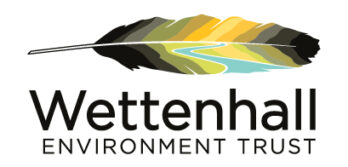Can you apply?
- Is your project about Australian flora and fauna conservation?
- Do you have partners to work with? Who will you share your work with?
- Is your project ready to go, and can you do it? Be sure before you apply (have your permits in place).
- Grants are usually under $10,000, but can be up to $15,000. Larger grants will be considered. Don’t make your budget add up to $15,000, or put 15% admin or project management fee in your budget. We want to hear and see exactly what you need whether it be insurance, wages, equipment etc.
- We are only a small organisation so have to be very focused about what we fund – make sure we are a “good fit” together.
- Universities – you can apply for up to $5,000. But we don’t fund pure research, you must be partnering with an ‘on ground’ group and be able to show it. Please also note that we want all the grant to be used by the applicant, and no administration charge will be paid to the university.
- All grant recipients must fill in a final report on-line after 12 months. The signed grant conditions letter is your written agreement to this. Please don’t apply unless you are willing to do this report and supply photos for our use. If you don’t report, you are in breach of these grant conditions.
- If you’re not sure whether to apply, email the Executive Director who is more than happy to give advice before you make an effort to fill in the form.
What we fund:
- Projects that directly make positive changes to biodiversity conservation in Australia.
- Projects should have some short term outputs, but also have long term objectives and values.
- Projects that use citizen science
- Projects that show the following: enthusiasm, collaboration, passion, innovation
- Projects that are about community education relating to conservation
- We can fund equipment, wages, travel or what is essential to you carrying out the project.
What we don’t fund (sorry):
- Art projects (even if it has an environmental theme)
- School projects
- Businesses, private companies, or start ups
- Environmental consultancies or consultants
- Advocacy
- On-ground works (planting, fencing or pest plant or animal control)
- Private property owners or farm projects
- Workshops alone, any workshops need to be a part of a larger project with an ‘action’ component
- Animal or wildlife rescue and rehabilitation organisations and their activities
- Invasive monitoring
- Gardens – bush food gardens, sensory gardens, veggie gardens, permaculture, chicken houses, water tanks, arboretums etc
- Pure academic research – academic applicants need to show how their research is directly linked to a community group doing conservation work. Research needs to be of benefit to those groups working on habitat or species conservation.
Feedback to applicants on their unsuccessful applications cannot be given. We are very sorry if this is not helpful.


